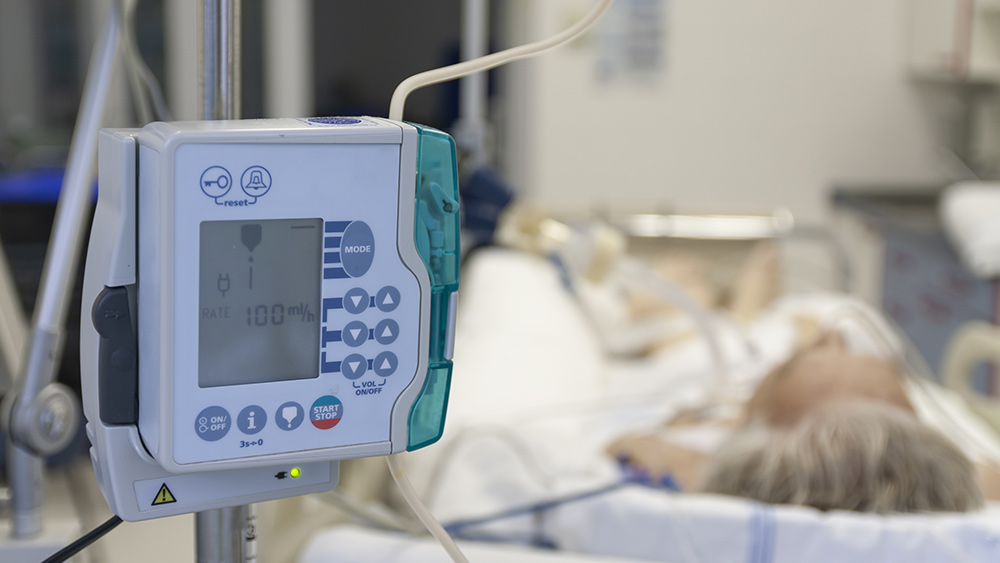Pill pushers: Today’s medical students are not taught about nutrition despite growing burden of diet-related disease
09/15/2020 / By Virgilio Marin

Future medical professionals are at risk of becoming “pill-pushers” – healthcare experts unfit to provide nutritional support to patients.
A review published in the Lancet analyzed previous studies on medical education and found that nutrition education isn’t adequately incorporated in current medical curricula. Many students and professionals lacked the necessary expertise in nutritional care. Meanwhile, existing nutrition courses are marked by poor quality.
These findings come as many people all over the world have fallen ill with diseases that can be prevented through diet. In fact, many of the known contributors to heart disease, the leading cause of death worldwide, are controllable. These include eating foods rich in unhealthy fats, tobacco use and drinking alcohol.
“Nutritional education for medical students must be improved and made a compulsory and meaningful part of the curriculum to support future doctors for the 21st century,” said co-author Dr. Lauren Ball from Griffith University in Australia.
Gaps in medical education
The researchers examined 24 studies all over the world, conducted from 2012 to 2018. These studies assessed medical education based on various criteria: the quality of nutrition curriculum initiatives; the perception of students on nutrition education; and the knowledge, attitudes, skills and confidence of students when it comes to nutrition counseling.
Results suggested that the needs of students in practicing nutrition care are not met by current medical education. According to the researchers, medical students wanted to hone their skills in nutrition care but perceived that their training isn’t enough to achieve this.

They cited the quality and quantity of education as major waterloos: Nutrition is not prioritized enough in the curriculum while faculty members lack the expertise or interest in teaching nutrition. Furthermore, students are not exposed enough to nutrition counseling during clinical years. These lapses in education cause major gaps in student knowledge. For example, in one of the reviewed studies, half of the medical students failed a test that measured their knowledge on nutrition care.
Instead of being integrated in a sustained way, most initiatives to include nutrition in the curriculum are done as a one-off activity. Initiatives introduced this way have only modest benefits, said the researchers. Hence, they called for more funding so that innovative curriculum initiatives become a mainstay in medical education. Initiatives such as online curriculum, hands-on cooking experiences and learning from dietitians and other professionals have shown short-term and long-term benefits for patients and health systems.
The failure to address lapses in medical education likely affects the standard of care received by patients, said the researchers. Therefore, it’s important that educational institutions are committed to making nutrition education compulsory in medical training. This can be achieved by introducing accreditation standards and establishing benchmarks of nutritional knowledge.
Dr. Stephen Devries, a cardiologist at the Gaples Institute for Integrative Cardiology in Illinois, commented on the study and said that improving nutrition education allows doctors to recommend healthy diets from sustainable food systems.
Devries, who was not part of the study, offered promising approaches to enhance nutrition education, such as teaching kitchens, greater utilization of interprofessional education and the integration of nutrition-related topics in lectures on disease pathogenesis and treatment. (Related: Doctor launches revolutionary continuing education program not funded by Big Pharma.)
He noted that a key challenge is identifying clinical mentors at this early stage of nutrition education. But Devries said, “[What] is already crystal clear, is that the worldwide state of nutrition education in medicine is inadequate. Our patients deserve much better. And so does our planet.”
EducationSystem.news has more on what’s wrong with today’s medical education.
Sources include:
Submit a correction >>
Tagged Under:
#nutrition, Big Pharma, brainwashed, campus, doctors, education system, indoctrination, learning, medical education, medical training, Medicine, nutrition counseling, nutrition curriculum, pill pushers, public education
This article may contain statements that reflect the opinion of the author





















